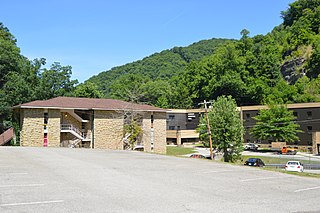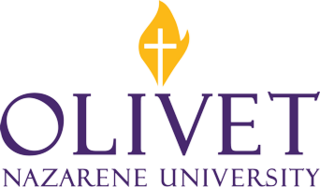Athletics
This section needs to be updated.(June 2016) |
USC's O. J. Mayo and Kansas State's Bill Walker both played for Rose Hill when they were eighth graders. The Royals joined the KHSAA IN 1991.
Rose Hill Christian High School is a private, non-profit Christian school operated by the Rose Hill Missionary Baptist Church in Ashland, Kentucky, United States. Organized in 1980, the school draws students from several Kentucky counties, as well as Ohio and West Virginia.
The school's philosophy is based upon its interpretation of Corinthians 2:2,3 and Luke 2:52: "We provide a Christian environment which encourages each student to develop those graces and skills demonstrated in the life of Christ; to discover and exercise his/her own unique, God-given abilities and gifts through expanding opportunities; and to achieve educational excellence in all disciplines, with a strong emphasis on patriotism, respect, and character building." [1]
Describing homosexuality as a "sexual perversion," the school notes in its student handbook that "...gambling, profanity, obscenity, the use of alcohol or any substance abuse, pre-marital sex, homosexuality or other sexual perversions, the indiscriminate taking of an innocent life (born or unborn), and other such practices" are considered unacceptable conduct and may be grounds for expulsion (emphasis added). [2]
This section needs to be updated.(June 2016) |
USC's O. J. Mayo and Kansas State's Bill Walker both played for Rose Hill when they were eighth graders. The Royals joined the KHSAA IN 1991.
Within Christianity, there are a variety of views on sexual orientation and homosexuality. The view that various Bible passages speak of homosexuality as immoral or sinful emerged through its interpretation and has since become entrenched in many Christian denominations through church doctrine and the wording of various translations of the Bible.

Lesbian, gay, bisexual, transgender and queer (LGBTQ) movements are social movements that advocate for LGBTQ people in society. Although there is not a primary or an overarching central organization that represents all LGBTQ people and their interests, numerous LGBTQ rights organizations are active worldwide. The first organization to promote LGBTQ rights was the Scientific-Humanitarian Committee, founded in 1897 in Berlin.

The views of the various different religions and religious believers regarding human sexuality range widely among and within them, from giving sex and sexuality a rather negative connotation to believing that sex is the highest expression of the divine. Some religions distinguish between human sexual activities that are practised for biological reproduction and those practised only for sexual pleasure in evaluating relative morality.

Russell is a home rule-class city on the south bank of the Ohio River in Greenup County, Kentucky, United States. The population was 3,380 as of the 2010 census, down from 3,645 in 2000. Russell is a suburb of Ashland and part of the Huntington-Ashland-Ironton metropolitan area. It has close economic affiliations with its neighbors, Ashland and Flatwoods in Kentucky and Ironton, Ohio.
Queer studies, sexual diversity studies, or LGBTQ studies is the study of topics relating to sexual orientation and gender identity usually focusing on lesbian, gay, bisexual, transgender, gender dysphoric, asexual, aromantic, queer, questioning, and intersex people and cultures.

Alice Lloyd College is a private work college in Pippa Passes, Kentucky, US. It was co-founded by the journalist Alice Spencer Geddes Lloyd and June Buchanan in 1923, at first under the name of Caney Junior College. Founded as an institution to educate leaders in Appalachia locally, it became a bachelor's degree-granting institution in the early 1980s. Alice Lloyd College is accredited by the Southern Association of Colleges and Schools (SACS).
Philosophy of sex is an aspect of applied philosophy involved with the study of sex and love. It includes both ethics of phenomena such as prostitution, rape, sexual harassment, sexual identity, the age of consent, homosexuality, and conceptual analysis of more universal questions such as "what is sex?" It also includes matters of sexuality and sexual identity and the ontological status of gender. Leading contemporary philosophers of sex include Alan Soble, Judith Butler, and Raja Halwani.

Olivet Nazarene University (ONU) is a private Nazarene university in Bourbonnais, Illinois. Named for its founding location, Olivet, Illinois, ONU was originally established as a grammar school in east-central Illinois in 1907. In the late 1930s, it moved to the campus in Bourbonnais. The university is affiliated with the Church of the Nazarene and is the annual site of the church's Regional Celebrate Life youth gathering for the Central USA Region.
Opposition to legal rights for lesbian, gay, bisexual, transgender and queer (LGBTQ) people exists throughout the world. LGBTQ rights opponents may be opposed to the decriminalization of homosexuality; laws permitting civil unions or partnerships or supporting LGBT parenting and adoption, LGBT military members, access to assisted reproductive technology, and access to gender-affirming surgery and gender-affirming hormone therapy for transgender individuals.

Scientology and its perspectives on sexual orientation are based on the writings of L. Ron Hubbard, the founder of the Church of Scientology. His statements about homosexuality have led critics to assert that Scientology promotes homophobia, though these allegations are disputed by some Scientologists.
Christopher Stephen Myles Kempling is a Canadian educator who was suspended by the British Columbia College of Teachers and disciplined by the Quesnel School District for anti-gay comments in letters to the editor of the Quesnel Cariboo Observer. Kempling challenged the suspension in court, arguing that his right to freedom of expression had been violated. The British Columbia Court of Appeal ruled against him, ruling that limitations on his freedom of expression were justified by the school's duty to maintain a tolerant and discrimination-free environment. Kempling filed a complaint with the British Columbia Human Rights Tribunal alleging that the disciplinary action taken against him by the school district infringed his freedom of religion; this complaint was dismissed on similar grounds.
Albert Moll was a neurologist, psychologist, sexologist, and ethicist. Alongside Iwan Bloch and Magnus Hirschfeld, he is considered the founder of medical psychology and sexology. Although Moll was a pioneer of sexology, his contemporaries such as Magnus Hirschfeld and Sigmund Freud eclipsed his work, primarily due to the bitter rivalry between them. Moll accused Freud of selection bias, and Freud claimed Moll could not handle constructive criticism after their first meeting.
Arlington Baptist University is a private Bible college in Arlington, Texas. It offers both undergraduate and graduate degree programs.
Teachings on sexuality in the Church of Jesus Christ of Latter-day Saints is deeply rooted in its doctrine. In its standards for sexual behavior called the law of chastity, top LDS leaders bar all premarital sex, all homosexual sexual activity, the viewing of pornography, masturbation, overtly sexual kissing, sexual dancing, and sexual touch outside of a heterosexual marriage. LDS Leaders teach that gender is defined in premortal life, and that part of the purpose of mortal life is for men and women to be sealed together in heterosexual marriages, progress eternally after death as gods together, and produce spiritual children in the afterlife. The church states that sexual relations within the framework of monogamous opposite-sex marriage are healthy, necessary, and approved by God. The LDS denomination of Mormonism places great emphasis on the sexual behavior of Mormon adherents, as a commitment to follow the law of chastity is required for baptism, adherence is required to receive a temple recommend, and is part of the temple endowment ceremony covenants devout participants promise by oath to keep.

All homosexual sexual activity is condemned as sinful by the Church of Jesus Christ of Latter-day Saints in its law of chastity, and the church teaches that God does not approve of same-sex marriage. Adherents who participate in same-sex sexual behavior may face church discipline. Members of the church who experience homosexual attractions, including those who self-identify as gay, lesbian, or bisexual remain in good standing in the church if they abstain from same-sex marriage and any homosexual sexual activity or sexual relationships outside an opposite-sex marriage. However, all people, including those in same-sex relationships and marriages, are permitted to attend the weekly Sunday meetings.

Boyd County is a county located in the U.S. Commonwealth of Kentucky. As of the 2020 census, its population was 48,261. The county seat is Catlettsburg, and its largest city is Ashland. The county was formed in 1860. The county spans 160 square miles (410 km2), and is found at the northeastern edge of the state, near the Ohio River and Big Sandy River and situated in mountainous Appalachia. Boyd County is in the Huntington-Ashland, WV-KY-OH metropolitan statistical area.

Timeline of events related to sexual orientation and medicine

Sodomy, also called buggery in British English, generally refers to either anal sex between people, or any sexual activity between a human and another animal (bestiality). It may also mean any non-procreative sexual activity. Originally the term sodomy, which is derived from the story of Sodom and Gomorrah in the Book of Genesis, was commonly restricted to homosexual anal sex. Sodomy laws in many countries criminalized the behavior. In the Western world, many of these laws have been overturned or are routinely not enforced. A person who practices sodomy is sometimes referred to as a sodomite, a pejorative term.
The East Carter High School shooting occurred on January 18, 1993, in Grayson, Kentucky, United States. The incident occurred when 17-year-old Gary Scott Pennington walked into an English classroom and fatally shot his teacher Deanna McDavid and head custodian Marvin Hicks, and held classmates hostage for 15 minutes before surrendering to police.

Since 1980, scholars have debated the translation and modern relevance of New Testament texts on homosexuality. Three distinct passages – Romans 1:26–27, 1 Corinthians 6:9–10, 1 Timothy 1:9–10 and Jude 1:7 – have been taken to condemn same-sex intercourse, but each passage remains contested. Whether these passages refer to homosexuality hinges on whether the social context limits the references to a more specific form: they may prohibit male pederasty or prostitution rather than homosexuality per se, while other scholars hold the position that these passages forbid sex between men in general. Another debate concerns the translation of key terms: arsenokoitēs (ἀρσενοκοίτης), malakos (μαλακός), and porneia (πορνεία). Meanwhile, other passages in the New Testament, such as the Ethiopian Eunuch, the Centurion's Servant, and Jesus's teaching on divorce, may or may not refer to homosexuality.
38°27′21.7″N82°40′39.8″W / 38.456028°N 82.677722°W